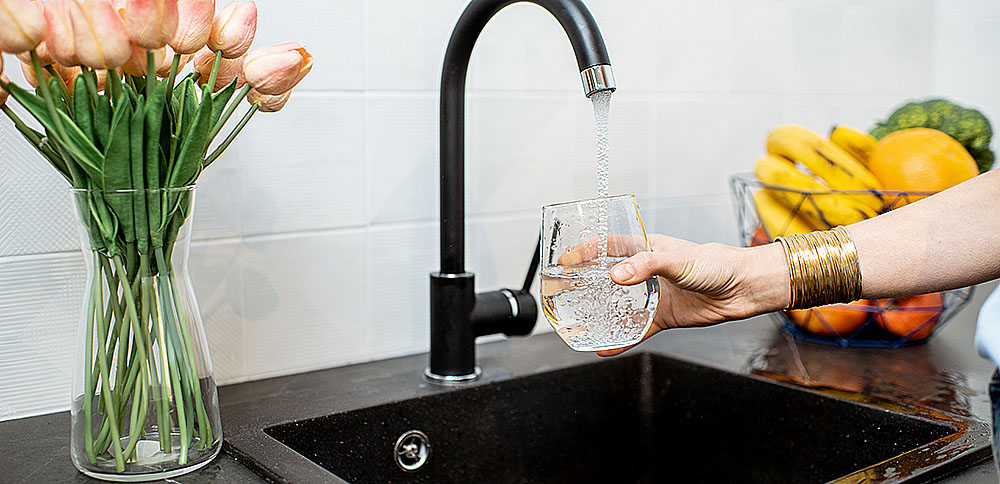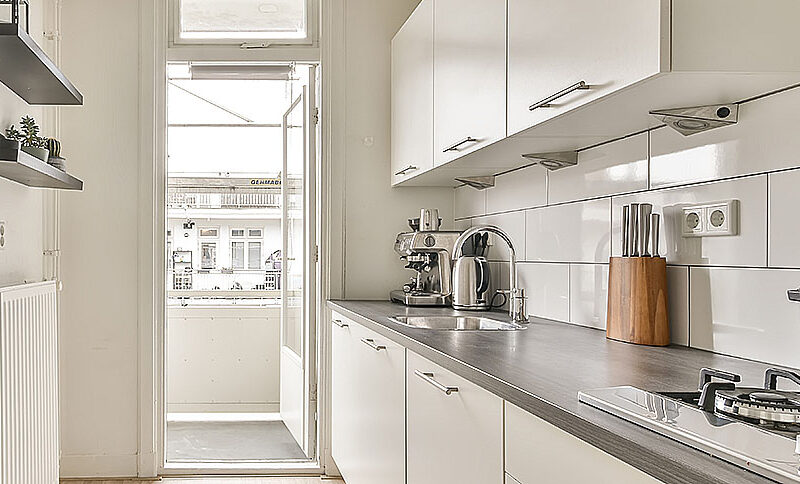In recent years, there has been a growing awareness about the environmental and health impacts of our choices in water consumption. Two primary options dominate household water consumption, bottled water and water filtration systems for tap water. While bottled water is often praised for its convenience and perceived purity, it raises significant environmental concerns due to plastic waste and carbon footprint. On the other hand, using a water filtration system for tap water presents a more sustainable and potentially healthier alternative, effectively addressing both environmental and health concerns with a simple, in-home solution.
Reasons to Choose Home Water Filtration Systems
Home water filtration systems are becoming more popular. Many people are now realizing the benefits of having one in their homes.
Improving Water Quality
The primary benefit of a home water filtration system is that it improves water quality. It removes contaminants like chlorine, heavy metals, and bacteria. This makes the water safer to drink. By filtering out these impurities, the system also enhances the taste and smell of the water. This makes it more enjoyable to drink.
Health Benefits
Using a home water filtration system also offers health benefits. By removing harmful contaminants, the water becomes healthier to drink. This can lead to improved overall health. Clean water is essential for good health. It helps in digestion, hydration, and even skin health. Drinking filtered water reduces the risk of consuming harmful chemicals and bacteria.
Economic Advantages
Having a water filtration system at home can also save money. Buying bottled water can be expensive. With a filtration system, you can drink clean water directly from the tap. This reduces the need to buy bottled water. Over time, the savings add up, making it a cost-effective choice.
Environmental Impact
Using a home water filtration system is better for the environment. It reduces the need for plastic water bottles. Plastic bottles create a lot of waste and harm the environment. By filtering your own water, you help to reduce plastic waste. This is a simple way to contribute to environmental protection.
Convenience and Ease of Use
Another advantage is convenience. You can access clean water anytime from your own home. You do not need to go to the store to buy water. This saves time and effort. Home water filtration systems are also easy to use and maintain. Most systems only require a simple filter change every few months.
Long-Term Health of Appliances
Filtered water is not just good for drinking. It is also better for your appliances. Hard water, which contains high levels of minerals, can damage appliances like kettles and washing machines. A water filtration system reduces these minerals. This can extend the life of your appliances.
Improves Cooking
Using filtered water can also improve your cooking. It ensures that the water you cook with is free from impurities. This can enhance the flavor of your food. Clean water is important for cooking because it affects the taste and quality of your meals.
Suitable for Sensitive Groups
Filtered water is particularly important for certain groups. This includes babies, the elderly, and people with weakening immune systems. These groups are more vulnerable to contaminants in water. A home filtration system ensures they have access to clean water. This helps to protect their health.
Customization Options
Home water filtration systems, including water softener system Meadville, have customizable options. You can choose a system that fits your specific needs. There are different types of systems available. Some designs remove specific contaminants. Others focus on improving taste and odor. You can select a system that matches your water quality and preferences.
Choosing the Right Water Filtration
Choosing the right water filtration system for your home is important. It ensures that you have clean, safe drinking water. There you should alway consider the key factors before making a choice.
Understand Your Water Source
First, you need to know where your water comes from. This affects the type of filtration system you need. If your water comes from a city supply, it might contain different impurities than well water. City water often has chlorine and fluoride. Well water might have more natural contaminants. You can get a water test kit from a hardware store or request a report from your local water provider. This will tell you what’s in your water.
Identify Specific Contaminants
Once you know your water source, find out what contaminants are present. Common contaminants include chlorine, lead, bacteria, and minerals like calcium. Each contaminant affects water quality differently. Some cause health issues. Others affect the taste and smell of the water. Your water test results will show you what you need to filter out.
Decide the Filtration System Type
There are different types of water filtration systems. Each type works best for certain needs.
Activated carbon filters remove organic compounds, chlorine, and chemicals. They improve taste and odor.Reverse osmosis systems are effective against a wide range of contaminants. They remove particles, heavy metals, and some bacteria.Ultraviolet filters use UV light to kill bacteria and viruses. They are great for well water.Choose a system that matches your specific needs. Consider what contaminants you need to remove.
Consider Installation and Maintenance
Think about where you will install the filtration system. Some systems go under the sink. Others connect to your main water line. Also, consider the maintenance required. Some systems need regular filter changes. Others need less frequent maintenance. Choose a system that fits your lifestyle.
Compare Costs
Cost is a crucial factor. The initial cost of the system is important. But also consider long-term costs like replacement filters. Some systems might seem cheap at first. But they could cost more in the long run. Balance the cost with the system’s effectiveness.
Check for Certifications
Look for certifications on any water filtration system. Certifications from organizations like NSF International mean the system meets certain standards. These certifications ensure the system does what it claims. They also indicate it’s safe to use.
Evaluate Your Water Usage
Think about how much water your household uses. Some systems are better for larger volumes of water. Others are more suited for smaller households. Choose a system that can handle your daily water usage.
Conclusion
Filtered tap water, in contrast, offers a more sustainable and cost-effective solution, and reduces environmental impact with potential health benefits. By opting for home water filtration systems, individuals can play a crucial role in reducing their environmental footprint and ensuring access to safe, clean drinking water. As we continue to seek sustainable living practices, the shift towards filtered tap water stands as a positive step in protecting our planet and health.
The choice between bottled water and whole house water filtration Warren is not just a matter of personal preference, but a decision with far-reaching environmental and health implications. Bottled water, while convenient, contributes significantly to environmental degradation due to plastic waste and the carbon emissions associated with its production and transportation.


